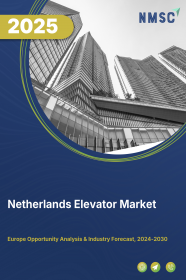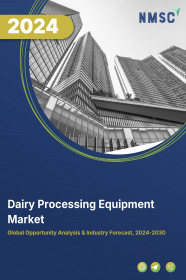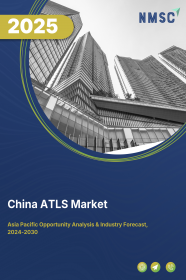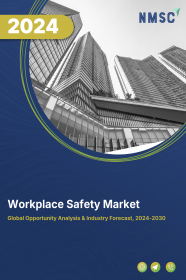
Netherlands Elevator Market by Type (Passenger elevator, Freight elevator and Others), by Technology (Traction and Hydraulic), by Service (New Installation, Maintenance and Modernization), by Capacity (Less than 1500 kg, 1500 to 2500 kg, 2501 to 4000 kg and More than 4000 kg) by Speed (Less than 1 M/S, Between 1 to 4 M/S and More than 5 M/S), by Deck type (Single Deck and Double Deck) and Others- Opportunity Analysis and Industry Forecast, 2024 –2030
Industry: Construction & Manufacturing | Publish Date: 15-Feb-2025 | No of Pages: 129 | No. of Tables: 95 | No. of Figures: 60 | Format: PDF | Report Code : CM1629
US Tariff Impact on Netherlands Elevator Market
Trump Tariffs Are Reshaping Global Business
Market Definition
Netherlands Elevator Market size was valued at USD 785.44 million in 2023, and is predicted to reach USD 1289.83 million by 2030, at a CAGR of 6.3 % from 2024 to 2030. The elevator market embodies a vibrant sector that encompasses the conception, production, installation, and upkeep of elevator systems. Ranging from traditional traction elevators to state-of-the-art smart solutions, this market presents a diverse range of vertical transportation options tailored to meet the unique needs of various buildings and infrastructure projects. Key players within the elevator market include manufacturers, suppliers, contractors, architects, building proprietors, and facility managers.
Manufacturers persistently innovate to elevate elevator performance, safety standards, and sustainability practices, while suppliers furnish essential components and materials essential for system assembly. Moreover, sustainability considerations, such as energy efficiency and material recyclability, are increasingly integrated into elevator design and operation, aligning with broader environmental goals and sustainable building principles. Consequently, the elevator market stands as a pivotal pillar of vertical mobility, enhancing functionality, accessibility, and sustainability across buildings and urban environments worldwide.
Rising Urban Population Drives the Growth of the Market
The significant concentration of urban population in the Netherlands is a key driver propelling the expansion of the elevator market. With urban areas constituting 93.2% of the total population in 2023, surpassing Denmark's 88.5%, there exists a pronounced demand for vertical mobility solutions like elevators. As cities in the Netherlands expand and become more densely populated, elevators play a pivotal role in enhancing accessibility and convenience for urban residents and businesses. The burgeoning urban population underscores the necessity for elevators, thereby driving the growth of the elevator market in the country.
Rising Adoption of Smart Elevators in The Netherlands Fuels the Growth of the Market
The introduction of smart elevators marks a significant driver in the evolution of the Netherlands' elevator market. As cities in the Netherlands continue to expand and embrace technological advancements, the integration of smart elevator systems has emerged as a transformative force in vertical mobility solutions. Smart elevators, equipped with advanced technologies such as artificial intelligence, IoT sensors, and cloud connectivity, offer enhanced efficiency, safety, and user experience.
With the Netherlands' status as a frontrunner in adopting smart city initiatives, the demand for intelligent infrastructure solutions like smart elevators is on the rise. These elevators not only optimize energy consumption and operational efficiency but also provide predictive maintenance capabilities, reducing downtime and enhancing reliability.
Furthermore, the introduction of smart elevators aligns with the country's sustainability goals, as they contribute to reduced carbon emissions and environmental impact through energy-efficient operations and optimized traffic management systems. The adoption of smart elevators represents a paradigm shift in the elevator industry, presenting opportunities for manufacturers, building owners, and residents alike. As urbanization trends continue and the need for vertical mobility solutions grows, the integration of smart elevators in the Netherlands underscores a commitment to innovation, sustainability, and improved urban living standards. Consequently, the introduction of smart elevators serves as a pivotal driver in shaping the future trajectory of the elevator market in the Netherlands.
High Initial Costs Obstruct Market Growth Within the Region
The substantial expenses associated with the installation, upkeep, and enhancement of elevators pose barriers to market expansion. From the initial installation outlay to the ongoing maintenance charges and the need for upgrades to meet safety regulations and enhance energy efficiency, building proprietors encounter significant financial challenges. These difficulties are particularly formidable for owners situated in economically disadvantaged areas or within older structures. As a result, the heightened costs linked with elevators impede market growth across various regions.
The Integration of Artificial Intelligence (AI) within Elevators Sets the Stage for Future Growth Opportunities
The combination of AI-driven predictive maintenance into the elevator industry presents a highly auspicious opportunity, fundamentally revolutionizing maintenance and operational approaches through AI advancements. By analyzing data gathered from elevator sensors, AI algorithms can predict maintenance requirements in advance, minimizing downtime and optimizing elevator availability. This proactive strategy not only prolongs the lifespan of elevator components but also enhances safety by anticipating unforeseen malfunctions and streamlining resource allocation, resulting in significant cost reductions for elevator companies. Moreover, well-maintained elevators elevate user satisfaction, thereby improving the overall experience for building occupants and visitors. Embracing AI-driven predictive maintenance enables elevator firms to stay competitive and maintain service excellence within a constantly evolving market landscape.
Competitive Landscape
The Netherlands elevator market comprises various market players, such as Schindler, Otis Elevator Company, TK Elevator (TKE), KONE Corporation, Orona, Toshiba Corporation, Stepless A/S, Alimak Group, MinElevator, KLEEMANN and others.
Netherlands Elevator Market Key Segments
By Type
-
Passenger elevator
-
Freight elevator
-
Others
By Technology
-
Traction
-
Machine Room [MR] Traction
-
Machine Roomless [MRL] Traction
-
-
Hydraulic
By Service
-
New Installation
-
Maintenance
-
Modernization
By Capacity
-
Less than 1500 kg
-
1500 to 2500 kg
-
2501 to 4000 kg
-
More than 4000 kg
By Speed
-
Less than 1 M/S
-
Between 1 to 4 M/S
-
More than 5 M/S
By Deck Type
-
Single Deck
-
Double Deck
By Designation Control
-
Smart
-
Conventional
By Door Type
-
Automatic
-
Manual
By Application
-
Residential
-
Commercial
-
Industrial
REPORT SCOPE AND SEGMENTATION:
|
Parameters |
Details |
|
Market Size in 2023 |
USD 785.44 Million |
|
Revenue Forecast in 2030 |
USD 1289.83 Million |
|
Growth Rate |
CAGR of 6.3 % from 2024 to 2030 |
|
Analysis Period |
2023–2030 |
|
Base Year Considered |
2023 |
|
Forecast Period |
2024–2030 |
|
Market Size Estimation |
Million (USD) |
|
Growth Factors |
|
|
Companies Profiled |
10 |
|
Market Share |
Available for 10 companies |
|
Customization Scope |
Free customization (equivalent up to 80 working hours of analysts) after purchase. Addition or alteration to country, regional, and segment scope. |
|
Pricing and Purchase Options |
Avail customized purchase options to meet your exact research needs. |
KEY PLAYERS
-
Schindler
-
Otis Elevator Company
-
TK Elevator (TKE)
-
KONE Corporation
-
Orona
-
Toshiba Corporation
-
Stepless A/S
-
Alimak Group
-
MinElevator
-
KLEEMANN

















 Speak to Our Analyst
Speak to Our Analyst




















